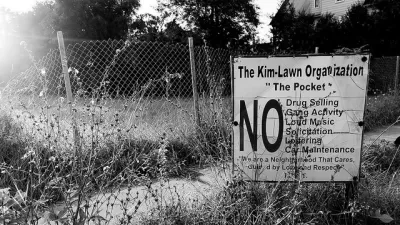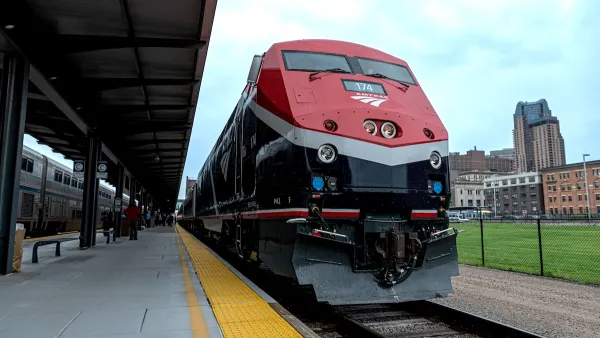The value of a single life lost or destroyed by gun violence is incalculable. But the cumulative impact of such savagery has consequences for a city's economy in the form of 'shuttered businesses, lost wages, disability checks and depopulation.'
With 506 homicides last year and 2,000 non-fatal shootings, Chicago far outpaced any other American city in its level of violent crime. Beyond the emotional impact on the victims, their families, and surrounding communities, such violence has a very real cost to the city as a whole, report Tim Jones & John McCormick.
"All told, shootings cost Chicago $2.5 billion a year, or about $2,500 per household, according to Jens Ludwig, director of the University of Chicago Crime Lab. Many of those costs are intangibles, Ludwig said, like keeping people from going outside or letting their children walk to school. Reducing even a fraction of the carnage, though, would free up more money than the city expects to save each year from the closing of 49 elementary schools approved yesterday by the school board."
In the city's South Shore neighborhood, the childhood home of first lady Michelle Obama, "the price of such violence can be gauged in its grim decline, from a vibrant redoubt among neighborhoods that have long been synonymous with urban mayhem to one on the verge of joining their ranks."
“Violence hurts the economy, and sooner or later it permeates everything,” said Teyonda Wertz, head of South Shore’s chamber of commerce. “Unless we change our crime situation, it’ll kill us.”
FULL STORY: Chicago Killings Cost $2.5 Billion as Murders Top N.Y.’s

Planetizen Federal Action Tracker
A weekly monitor of how Trump’s orders and actions are impacting planners and planning in America.

Restaurant Patios Were a Pandemic Win — Why Were They so Hard to Keep?
Social distancing requirements and changes in travel patterns prompted cities to pilot new uses for street and sidewalk space. Then it got complicated.

Map: Where Senate Republicans Want to Sell Your Public Lands
For public land advocates, the Senate Republicans’ proposal to sell millions of acres of public land in the West is “the biggest fight of their careers.”

Maui's Vacation Rental Debate Turns Ugly
Verbal attacks, misinformation campaigns and fistfights plague a high-stakes debate to convert thousands of vacation rentals into long-term housing.

San Francisco Suspends Traffic Calming Amidst Record Deaths
Citing “a challenging fiscal landscape,” the city will cease the program on the heels of 42 traffic deaths, including 24 pedestrians.

California Homeless Arrests, Citations Spike After Ruling
An investigation reveals that anti-homeless actions increased up to 500% after Grants Pass v. Johnson — even in cities claiming no policy change.
Urban Design for Planners 1: Software Tools
This six-course series explores essential urban design concepts using open source software and equips planners with the tools they need to participate fully in the urban design process.
Planning for Universal Design
Learn the tools for implementing Universal Design in planning regulations.
Heyer Gruel & Associates PA
JM Goldson LLC
Custer County Colorado
City of Camden Redevelopment Agency
City of Astoria
Transportation Research & Education Center (TREC) at Portland State University
Camden Redevelopment Agency
City of Claremont
Municipality of Princeton (NJ)




























